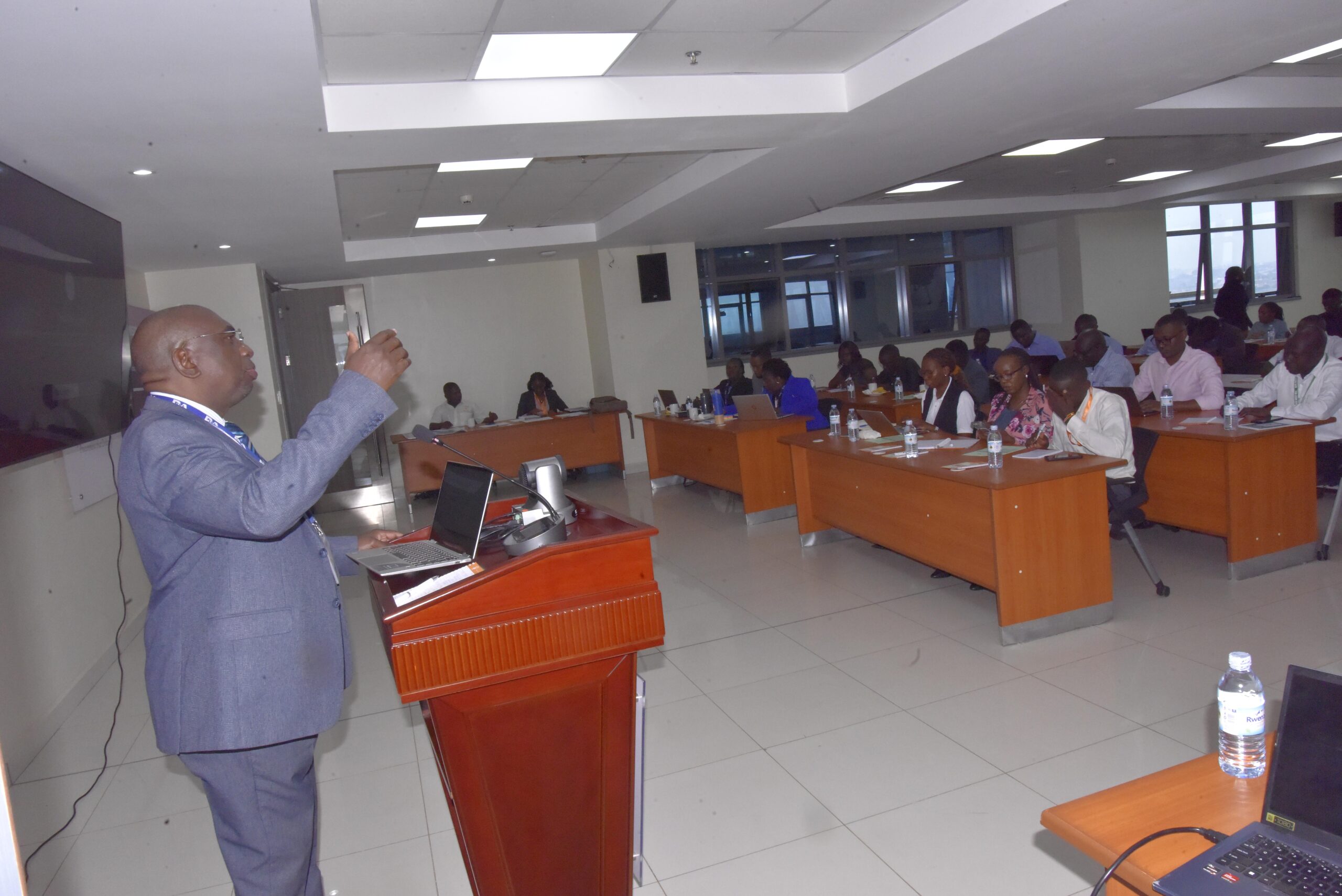Uganda fights back with PPDA & CSBAG’s tech arsenal against corruption

Byaruhanga(Left) expressing delight after launching PPDA's partnership with CSBAG at their head officers along Nakasero road on Thursday morning. Listening are some of the attendees from both CSBAG and PPDA.
KAMPALA, Uganda – Uganda’s fight against procurement corruption is gaining new momentum. The Public Procurement and Disposal of Public Assets Authority (PPDA) has entered a strategic partnership with the Civil Society Budget Advocacy Group (CSBAG) to clamp down on graft in government contracting a sector widely regarded as one of the largest spending arms of public finance.
The partnership, formally launched at PPDA headquarters in Kampala, introduces a collaborative effort between government regulators and civil society actors, aimed at transforming public procurement oversight. Central to this initiative is a new digital tool, the Contract Monitoring System (CMS) designed to increase transparency, accountability, and citizen participation.
A united strategy for accountability
Speaking at the event, CSBAG Executive Director Julius Mukunda underscored the importance of partnerships in addressing procurement-related corruption, calling them “indispensable” in the fight for sound public finance management.
“We can’t do without partnerships in this fight,” he stated. “Procurement is where the biggest money is, and without accurate data and collaboration, it’s impossible to ensure proper accountability.”
His remarks were echoed by Carol Namagembe, CSBAG’s Deputy Executive Director, who noted that this joint effort is already drawing interest from other stakeholders keen to participate in procurement transparency.
From paper to platform: How CMS is changing the game
The Contract Monitoring System, developed with support from GIZ’s Governance and Civil Society Programme and the Uganda Contract Monitoring Coalition, represents a major leap from the old, paper-based oversight methods.
It’s more than just a platform, it’s a digital infrastructure that enables civil society organizations across Uganda to track the performance of public contracts. The system is operational in 67 districts and has already helped monitor over 700 projects worth more than UGX 642 billion.
Through the CMS, users can document project progress with photos, videos, and GPS-tagged evidence, and report directly to PPDA in real time. The app also strengthens the capacity of CSOs by training them in procurement procedures and the use of open data.
Beyond enhancing oversight, the tool fosters a more inclusive process, allowing citizens who are the ultimate beneficiaries of public projects to participate in monitoring what’s being delivered in their communities.
PPDA’s commitment and the broader fight
Aloysius Byaruhanga, speaking on behalf of PPDA’s Director of Performance Monitoring, welcomed the partnership as a timely intervention to boost public trust and improve the effectiveness of government programs.
“This collaboration gives us reliable, real-time information,” he said. “It puts more eyes on public projects, and ultimately strengthens service delivery where it matters most at the community level.”
The CMS complements PPDA’s broader mandate, which includes setting procurement standards, conducting audits, investigating irregularities, and building institutional capacity.
PPDA also manages the Government Procurement Portal, where contract details must be published to ensure public access. An upcoming nationwide rollout of an electronic procurement system is expected to further minimize human interference a key driver of corruption.
Real challenges, Real Consequences
Despite these efforts, procurement fraud remains deeply rooted. PPDA audits continue to reveal cases of collusion among contractors, forged documents, and contract approvals made without proper procedures.
In some instances, payments are made before projects are completed, a recurring problem near the end of financial years. Bribery in the awarding of contracts also persists, undermining both transparency and public trust.
Photos from incomplete government sites, such as the Busaale Health Centre in Kayunga District, show abandoned structures including VIP latrines and maternity wards stark reminders of the human cost of procurement failures.
Looking ahead
The new alliance between PPDA and CSBAG represents a renewed push toward accountability. By blending civil society vigilance with digital innovation, the initiative not only strengthens the country’s anti-corruption framework but also gives Ugandans a stronger voice in public resource management.
It is a step forward in ensuring that government spending delivers real value — not just on paper, but in the lives of citizens.
As Uganda deepens these reforms, the hope is clear: a public procurement system that is transparent, citizen-driven, and corruption-resistant.




